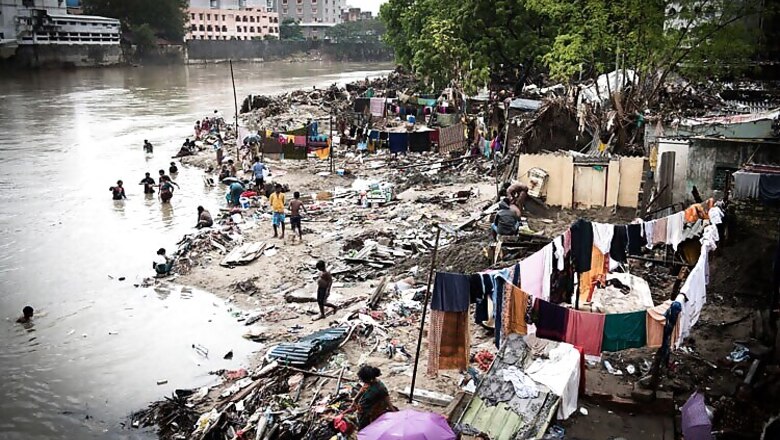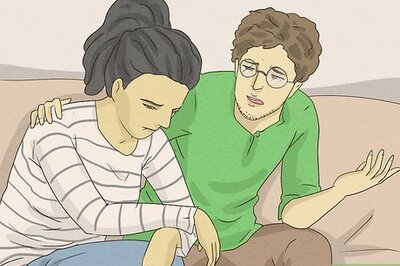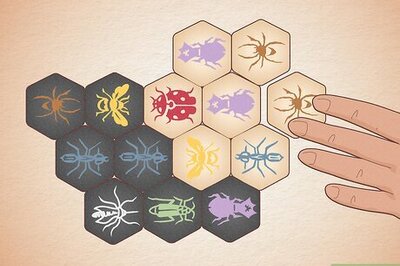
views
No day is another day in paradise in any of Chennai’s many relief camps. I smelt it before I saw it. The huge piles of garbage – including human and animal excreta, used sanitary napkins and animal carcasses – and the multitudes living in and around them just numbed my brain. The camps I visited on Sunday bore a grim testimony to the harsh reality of lack of hygiene faced by the inmates, some of whom have been in the camp for almost a month.
The fury of nature over the past few weeks coupled with our city’s poor preparedness for a disaster of this magnitude is complicated by the continued, overwhelming disregard to hygiene and sanitation in our own streets. But the solution does not lie in blaming the government, criticizing systems and structures, questioning delays and decisions on disaster response, political affiliations and issuing advisories. We have only ourselves to blame for the city’s present unhygienic conditions due to hoarding of our garbage, an eye-sore in every street. Our solid waste dumped into impotent drainage systems requires super powers to clean them and as this could not be done earlier, we may be on the brink of an urban epidemic of mammoth proportions. We saw it coming all long and waited for an act of nature to blame.
According to a report from the Government of Tamil Nadu on 6th December 2015 - 14, 32,924 people have been evacuated from low lying areas in the state. What were they doing there in the first place? I wonder. The booming real estate market in Chennai and its suburbs which only highlights the ‘top 10 reasons why you should invest’ does not favour those who have lived on the banks of Adyar and Coovum rivers for decades. Multi-storied apartment complexes on landfills continue to flourish, mocking the city’s fragile, underground drainage systems.
Of course, the city did brilliantly to help themselves out in the face of such a terrible disaster – the hand-outs and efforts of philanthropy in the relief camps are indeed much appreciated. However, when relief response is ill-timed, duplicated, not coordinated, not based on actual needs and not addressing our behaviours and practices, it might be counter-productive. The mind-boggling amount of plastic water bottles, plastic bags, paper plates and biscuit wrappers will only lead to more clogging of the city’s burdened drainage and garbage sites. Unless this is taken care of by us, that is. My heart goes out to the lean, sickly-looking garbage cleaner on his tricycle. His inebriation is understandable, considering the horrors he deals with daily over the past few weeks. I am amazed at our own apathy that we don’t mind living in such despicable circumstances and even allow our children to live in the same way.
For the civilized and culturally rich state that Tamil Nadu is known to be, this season revealed one of our true colors – our seemingly ‘normal’ notion that hygiene and sanitation is the neighbor’s business and not ours to own. Unless you and I (Yes, I am responsible too!) awaken from this complacent nap and not pass the blame around – this year’s terrible disaster may herald that beginning of a diseased era for a historic city. A city trapped in its own garbage and sinking.
As the dark waters on the streets swirled around my feet and the stench of human waste filled the air, I looked up at the dark windows of a relief camp in Saidapet, devoid of any power supply. Jeyachitra was smiling in the dark as she held up her 10-month old son to me proudly. Tomorrow is just another day for her – more biscuit packets and tamarind rice, more water packets, a battle of wits to answer nature’s call in the dark beside the train tracks. Maybe she will bathe her son tomorrow, maybe not. Maybe a film star might visit them, maybe she will return home. And just maybe, to a cleaner, healthier city.

















Comments
0 comment